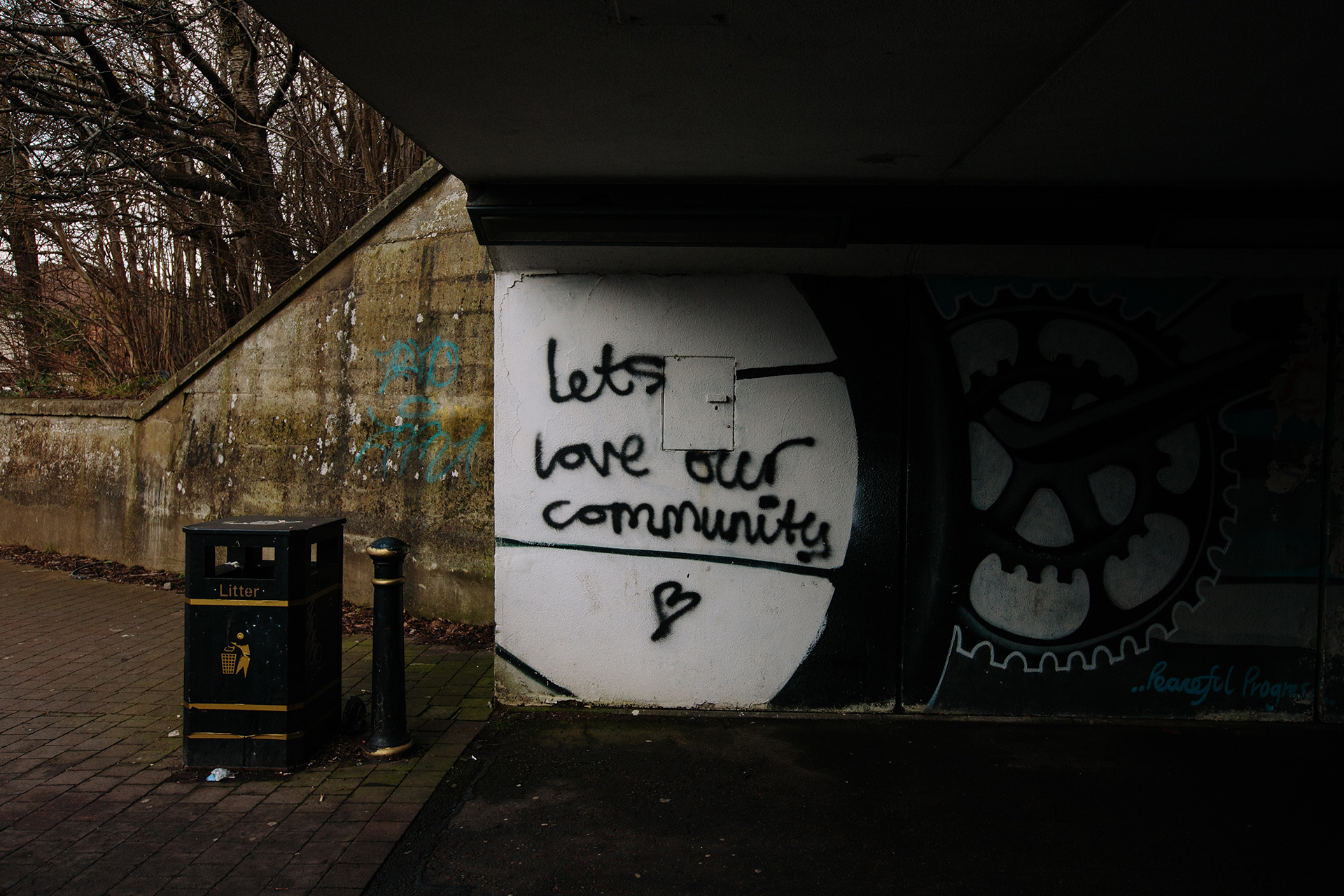Stress Awareness Month: April 2022: Community
I believe that people today think that life is more stressful now than it was some time ago. There may be many reasons for this, but one significant, current factor is society gradually emerging from the Covid 19 pandemic and doing this while continuing to feel its shadow falling over us. Standing in a shadow gives one the feeling of reduced light which can make it harder to see. It also can give a sensation of feeling cold. When one is stressed, one often struggles to see a way forward through problems and one wants to change one’s environment to move towards somewhere more pleasant, perhaps out of the cold.
The Stress Management Society has chosen ‘Community’ as the theme for this year’s Stress Awareness month. There is an excellent article on their webpage. It is clear that they have specifically chosen this theme at a time when long periods of isolation across the pandemic affected how we behaved as communities, be that as families, friends, workplaces, places of worship or hobbies and societies. It also links into the theme of ‘Loneliness’ for the Mental Health Foundation’s Mental Health Awareness Week in May.
Being part of a group or community is researched to be a positive, protective factor against people feeling increasingly stressed or overwhelmed by negative emotions. Having others you can trust to share your emotions with, to talk things through, has been shown to decrease stress levels for individuals. Communities provide support, they help to empower people and validate how they are feeling. Sharing with and connecting to others, by giving or receiving support, instils feelings of reassurance and security and thereby helps to dispel anxieties and concerns; It is also researched that doing a good deed, helping someone, boosts our feelings of wellbeing and gives rise to the secretion of ‘happy chemicals,’ or endorphins, in the body. This is more likely to happen with people in your community. Hugging someone has the same effect. There is also research showing that being disconnected from others is a significant health risk as it leads to unhealthy behaviours like increased smoking and alcohol consumption and a decrease in engaging in physical activity.
Communities can exist physically or virtually. The latter became very important over the last 2 years of the pandemic. Now, it is possible to re-establish face to face communities and reap the benefits that they can bring.
The University is a community of people working towards a common purpose. Some people are new to the community; some have worked here for many, many years. We work in teams and groups and we can be a great source of support for each other. We share common work experiences, positive and negative, like enjoying the beautiful Campus, belonging to the various Staff Network groups, the recent restructuring and working through the pandemic. Naturally, not everything is hunky dory all the time between colleagues, but the organisation does have lots of resources in place to support its staff and help when stress does occur. Check out the Universities’ webpages on Staff Mental Health Support and Staff Health and Wellbeing or the Staff Yammer Wellbeing channel. There is information on the Employee Assistance Programme and on the Mental Health Allies Network.
And if you want to get a flavour of a totally different approach for using a work community to address work stress, read the very interesting article in the Harvard Business Review (see the link below). In addition, there are some links to articles and videos below which will give you more information on the nature of stress and tips on how to deal with things in life which cause stress. The Pure Retirement clip is longer than ones I usually include but is an interesting resource.
‘The Importance of Community’ posted by Justine Clarabut on wellbeingpeople.com
‘5 benefits of being part of a community’ by Rachel Frederick on thewellnessuniverse.com
‘Stress: How can friends and family help?’ on mind.org.uk
‘Strong communities, wellbeing and resilience’ on kingsfund.org.uk
‘Social Support and Resilience to Stress’ by Fatih Ozbay, MD, corresponding author Douglas C. Johnson, PhD, Eleni Dimoulas, PhD, C.A. Morgan, III, MD, MA, Dennis Charney, MD, and Steven Southwick, MD on PubMed Central
‘Stop Framing Wellness Programs Around Self-Care’ by Michelle A Barton, Bill Kahn, Sally Maitlis and Kathleen M Sutcliffe on hbr.org
‘Managing Stress and Stressful Situations’ by Catherine Clark on healthline.com
‘Stress Prevention’ on mentalhelp.net
‘Feeling Stressed?’ on NHS – Every Mind Matters
‘Stress’ on mentalhealth.org.uk
‘7 Tips For Reducing Stress’ by North Kansas City Hospital on YouTube
‘Stress Awareness: Tips to Become More Resilient’ by Pure Retirement in YouTube

